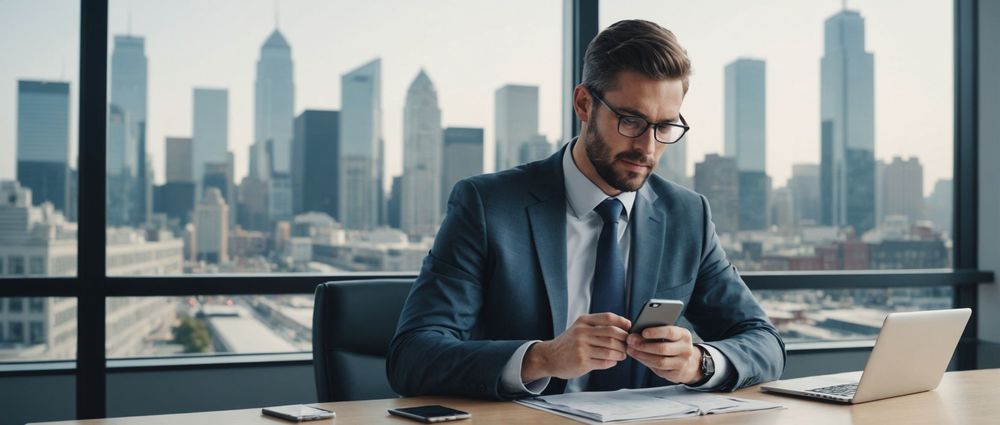In an era where communication has become instant and omnipresent, providing efficient and effective SMS customer support has become a vital aspect of many businesses. This article aims to offer actionable tips and best practices to help you optimize your SMS customer support strategy, ensuring prompt, personalized, and satisfying customer interactions.
Understanding the Importance of SMS Customer Support
SMS customer support is a powerful tool that can greatly enhance the customer experience. Text messages have a high open rate and are often read within minutes, making them an excellent channel for timely support. By integrating SMS into your customer service strategy, you can provide quick responses, foster stronger relationships, and improve overall customer satisfaction.
Through SMS, you can reach customers regardless of their internet connectivity, making it a highly reliable support method. Additionally, it allows for more personal and direct communication compared to email or social media. The discreet nature of SMS also makes it preferable for customers seeking quick assistance without engaging in lengthy phone calls.
Best Practices for Effective SMS Customer Support

1. Use Automated Responses for Common Queries
Automated responses can significantly improve the efficiency of your SMS customer support. By setting up predefined replies, you can quickly address common queries without human intervention. This not only speeds up the support process but also frees up your team to focus on more complex issues.
However, it’s crucial to ensure that these automated messages are well-crafted and relevant. They should include clear and concise information, potentially directing customers to helpful resources or suggesting next steps.
2. Personalize Your Communication
Personalization is key to providing a superior customer experience. When drafting SMS messages, try to address customers by their names and reference their specific issues or inquiries. Personalized messages can make customers feel more valued and understood, boosting their overall satisfaction.
Furthermore, personalized communication often leads to quicker resolution of issues, as it demonstrates that your team has a clear understanding of the customer’s problem. Utilize CRM tools to gather and leverage customer data effectively in your SMS interactions.
3. Maintain a Professional Tone
While SMS is a more informal communication channel, it’s important to maintain a professional tone. Your messages should be clear, concise, and free from errors. Avoid using slang or overly casual language, as this might undermine your company’s credibility.
Balancing professionalism with a friendly tone can make your messages both approachable and authoritative. This approach ensures that customers take your support efforts seriously while feeling comfortable enough to engage openly.
4. Respect Customers’ Time
Customers reach out via SMS expecting quick responses, so it’s essential to respect their time. Ensure that your support team is prompt in replying to queries and follows up when necessary. Delays can lead to frustration and potentially damage your brand’s reputation.
Consider implementing a system to track response times and set realistic expectations for customers regarding when they can expect a reply. Transparency in communication can greatly enhance the overall customer experience.
5. Provide Clear Instructions and Solutions
When replying to customer inquiries, clarity is paramount. Ensure that your messages provide clear, straightforward instructions or solutions to the customer’s problem. Avoid using complex jargon or technical terms that might confuse the customer.
Including step-by-step guidance can make it easier for customers to follow through and resolve their issues:
- Identify the issue clearly
- Provide specific solutions or steps
- Offer additional resources if necessary
- Encourage customers to reach out again if they need further assistance
This structured approach not only helps in resolving issues effectively but also builds customer trust in your support system.
Conclusion

Implementing SMS customer support can greatly enhance your customer service strategy, offering a quick, personalized, and effective communication channel. By employing automated responses, personalizing messages, maintaining professionalism, respecting customers’ time, and providing clear instructions, you can significantly improve customer satisfaction.
Adopting these best practices ensures that your SMS support is not just responsive but also robust and reliable, ultimately strengthening customer loyalty and trust in your brand.
FAQ
1. What are the benefits of SMS customer support?
SMS customer support offers several benefits, including high open rates, quick response times, accessibility without internet connectivity, and the ability to provide personalized and direct communication.
2. How can we automate SMS customer support?
You can automate SMS customer support by setting up predefined responses for frequently asked questions and common issues. This helps in providing quick replies and freeing up support agents to handle more complex problems.
3. Why is personalization important in SMS customer support?
Personalization in SMS customer support makes customers feel valued and understood. It often leads to quicker issue resolution as personalized messages demonstrate a clear understanding of the customer’s problem.
4. How quickly should we respond to SMS customer inquiries?
It is best to respond to SMS customer inquiries as promptly as possible, ideally within minutes. Quick responses help in avoiding customer frustration and improving overall satisfaction.
5. What tone should we use in SMS customer support?
While SMS is more informal, maintaining a professional and friendly tone is crucial. Messages should be clear, concise, and free from errors to ensure credibility and efficient communication.



